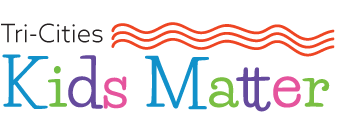Supporting Your Child During Middle Years
- Home
- Resources
- Child Development
- Middle Years (6 to 12)
The following chart helps provide ideas for supporting your child through their physical, cognitive and social development through the middle years (6 to 12 years). These are only guidelines and suggestions. If you are concerned about your child's development please contact a professional.
For child development charts for children birth to 5 years please visit our Early Years Child Development page.
Download the a PDF of the chart in the following languages:
Physical
What children can do
Characteristics*
- They learn to control their bodies
- They have lots of energy.
- They enjoy manipulating objects.
- They may find handling small objects or performing fine motor tasks challenging.
What You Can Do
- Provide periods of down time for free play
- Physical activity daily, especially after sedentary periods.
- Good sleep habits approximately 10 hours of sleep per night on average.
- Introduce games that practice fine motor skills.
Cognitive
What children can understand (thought processes)
Characteristics*
- They learn best by doing.
- They understand clear and simple sentences.
- Instructions need to be few and simple.
- They have a limited attention spand and are easily distracted by their environment.
- They are very imaginative.
- Decisions are emotionally based.
What You Can Do
- Have routines for homework, chores etc.
- Avoid complex and lengthy explanations.
- Use simple situations as learning opportunities (changing light bulbs - electricity, grocery shopping - money & nutrition etc.).
- Imaginative play (lego, building games).
- Time to undertake creative projects (art with markers, leaves, glue, glitter, popsicle sticks etc.).
Social
What types of relationships children can have.
Characteristics*
- They can be somewhat self-centred.
- They play better in pairs than in groups.
- They need to be constantly reminded of the group rules.
- They like to express themselves, but share personal information when asked direct and simple questions.
What You Can Do
- Encourage playing with children outside of tight groups to support maintaining other friendships.
- Provide time for solitary activities.
- Provide opportunities to join groups or teams.
- Support play dates and times with friends in a supervised setting.
- Find time to spend one on one (bike rides, walks, ice cream, etc.).
*Source: Equitas – the International Centre for Human Rights Education. Play it Fair! 2008. www.equitas.org
Physical
What children can do
Characteristics*
- They enjoy moving and being active.
- They enjoy sports, dancing and physically intense games.
- They can play until they are exhausted.
- Will play vigorously in one activity but will quickly drop it for another.
What You Can Do
- Guide competitive energy into activitities that require cooperation, not a win / lose mentality.
- Explain and be a rold model for healthy activity and nutrition decisions.
- Provide a variety of activities that allow for skill level changes around endurance, agility, concentration, coordiantion and movement.
- Allow children to participate in a variety of activities.
Cognitive
What children can understand (thought processes)
Characteristics*
- They are curious and enjoy learning new things.
- They learn best when involved in a concrete project.
- They may become frustrated when things do not turn out as expected.
- Forgetful and lazy tendencies. Don't want to do chores or basic hygiene.
- Typically steeple age. Kids generally happy and easy going but when upset can't handle emotions well.
What You Can Do
- Find opportunities for skill development (programs, activities, a role model to teach them how to bike, cook, knit, play a sport, etc.)
- Provide time for personal projects using technology that they like. Make a movie, write a blog or make music. Ensure computer access is supervised and limited.
- Encourage a schedule for daily reminders to rush hair, teeth etc.
Social
What types of relationships children can have.
Characteristics*
- They place increasing importance on friendships.
- They enjoy playing and taking up group challenges.
- They are sometimes competitive.
- They can express what you like or don't like, but their judgement is sometimes not well developed
- Still feel close to parents and siblings
- Squabbling with younger siblings common.
What You Can Do
- Encourage them to talk about what is bothering them.
- Talk with your kids to come up with creative ways to look at problems. There is no one right answer.
- Plan family outings.
- Keep an eye on intense friendships.
- Encourage expanding social network.
*Source: Equitas – the International Centre for Human Rights Education. Play it Fair! 2008. www.equitas.org
Physical
What children can do
Characteristics*
- Experience rapid physical change especially girls.
- Their energy levels vary.
- They may find it difficult to control their emotions.
- They may feel uncoordinated at times durng growth spurts.
What You Can Do
- Be Sensitive to changes in relationships - talk about how natural it is that kids develop at different rates.
- Good time to introduce new activities and skills that require complex movements and though patterns (martial arts, yoga, dance, tennis etc.)
- Be a role model: take your child for a run, bike, walk, swim, gym etc. activity is important in maintaining healthy body image for children entering puberty.
Cognitive
What children can understand (thought processes)
Characteristics*
- They begin to develop abstract thinking skills.
- They learn well through imitating role models.
- They are adventurous and enjoy change.
- They have a good attention span.
What You Can Do
- Reinforce home values and code of conduct.
- Praise and encourage your child for independent undertakings like cleaning room, doing homework, critical thinking and not just following along etc.
- Support their decision making skills by encouraging in discussion / debate about issues.
Social
What types of relationships children can have.
Characteristics*
- They enjoy working in teams.
- They seek the approval of their peers.
- They are more independent and begin to question authority.
- They enjoy projects that involve helping others and social justice.
What You Can Do
- Identify readiness to be left alone and develop a safety plan to provide short periods where the child can be left alone.
- Alarm for personal space and time.
- Don't take verbal outbursts personally.
- Clear rules outlining what is inappropriate behaviour and the resulting consequences.
- Walk away from "attitude" and power struggles.
- Continue with praise and encouragement.
- Minimize comparisons with others.
- They decide they need to be the best - focus on them trying their best.
*Source: Equitas – the International Centre for Human Rights Education. Play it Fair! 2008. www.equitas.org


